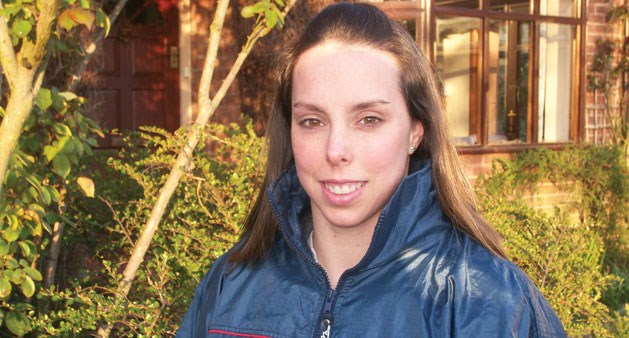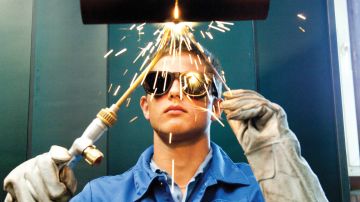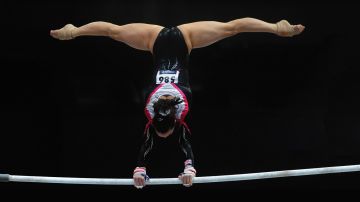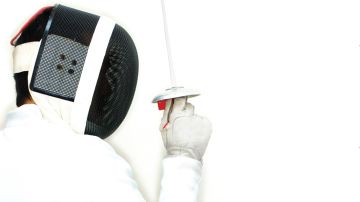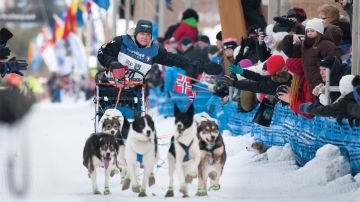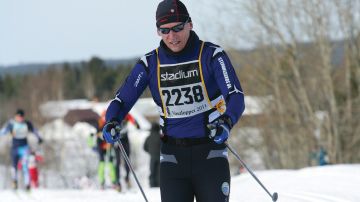UK gymnast Beth Tweddle is set to raise the bar again
It will be business as usual for Britain’s Beth Tweddle when she takes on the world at London’s 2012 Olympics. Not so, maybe, for Mum and Dad who will be watching nervously from the stands. But Beth knows what it takes to be the best, be it in business or sport. It’s about But this 26-year-old stands tall to make history at London 2012.
On the face of it, Beth Tweddle is an unlikely heroine.
At 5ft 3 inches, she’s tiny, modest and incredibly unassuming.
For Britain has never won an Olympic medal in an individual female event.
Arguably, though, Beth has already made history. She is, after all, the only non-teenage woman to win the World Championships three times.
But it’s an Olympic medal that still eludes her – and it’s the thing that still drives her. Dad, Jerry Tweddle, Business Manager INEOS Compounds understands that desire, but says after coming so close at Beijing in 2008, this time Britain expects Beth to do well – and that adds to the pressure.
“Most of the athletes are just pleased to get to the Olympics but for people like Paula Radcliffe, where there is an expectation of a gold medal, it is just trauma,” he said.
“The run-up to the Olympics will be hard.”
But Beth remains remarkably calm and says, if anything, she is looking forward to competing in front of a home crowd.
“It is a once-in-a-lifetime opportunity and that’s how I want to think of it,” she said. “Not as massive pressure.”
At 26, she knows she is a veteran in the world of gymnastics but plans to use that to her advantage.
“I may not have the body of a 16-year-old but I have a lot more experience on my side,” she said.
Experience is something she has acquired over the 18 years she has been competing.
“Most athletes compete in one Olympics,” said Jerry. “This will be Beth’s third.”
The ability to come back year after year is a quality Beth admires in other athletes. “I know how much dedication it takes to remain at the top,” she said.
Athletes she admires most are marathon runner Paula Radcliffe and Olympic gold medalist Kelly Holmes.
“Both of them have had a lot of injuries throughout their careers but they have both still managed to achieve amazing things,” she said.
“I have also had my fair share (of injuries) but think: If they can do it, then why can’t I?”
Beth’s parents have also been a wonderful source of support and inspiration.
“The greatest thing they have ever taught me is to never give up and to treat everyone the way you would like to be treated,” she said.
As with all true champions, she believes that practice makes perfect.
Sometimes it can take her three months to master one skill – even before she has weaved it into her routine.
“It’s basically a question of doing it over and over again until it’s perfected,” she said. “It can get a bit tedious but that’s what you have to do.”
“Champions work hard and are willing to keep at it even when things are going against them.” One of the hardest things for gymnasts is that if they take three months out from training, their height changes, their technique changes and their timing changes.
“Unfortunately, if you’re half a second out in gymnastics, that’s when it all goes wrong. And I’ve found that out many a time.”
“If you let go of the bars too early or too late, you’re on your face. It’s milliseconds that make the difference.”
When she takes to the floor – and bars – at London 2012, she will have performed her 140-second routine hundreds of times in the gym.
But, knowing Beth, who now has a move named after her, there will be a few surprises in store for those watching. In short, she will be taking risks.
“If I hold back and do a safe routine, I won’t be in with a chance of a medal,” she said.
“It’s as simple as that.”
Those 50 seconds on the bars, she said, are like being on a rollercoaster.
“The only difference is that I am in control of it,” she said.
Whatever happens at London 2012, Beth, who plans to retire from the sport, has already raised the bar for gymnastics in the UK. Hugely.
“I do find it a little bit strange when others describe me as an inspiration,” she said. “But it is an honour.”
“To me, I am still the same person I used to be. I am just in the gym training the hours I used to train.”
“The only difference is that I now have a few more titles to my name.”
Mum and Dad, though, are immensely proud of her achievements to date – and will be, whether she wins or loses at London.
“Sometimes someone wins an Olympic gold but you cannot remember their name,” said Jerry. “But Beth’s name will forever be linked with raising the standard of British gymnastics and inspiring youngsters to follow in her footsteps.”
Parents Need Nerves of Steel Too
It’s hard to know whose nerves will be tested most when Britain’s top gymnast Beth Tweddle goes for gold at London 2012 Olympics.
Will it be Dad’s, Jerry Tweddle Business Manager INEOS Compounds, Mum Ann’s? Or their daughter’s who, at 26, is now considered positively geriatric in gymnastic terms?
If history is anything to go by, though, it’s unlikely to be Beth.
“When you are standing waiting for your turn, you have to be 100% confident that it is going to work,” she said.
“If you are even slightly nervous or worried that you might hurt yourself, that’s when accidents usually happen.”
“Gymnastics is 90% mental.”
Mum and Dad know that but it doesn’t stop them worrying.
“I am so nervous that I want to talk to anyone who’ll listen,” said Ann. “But Jerry goes very quiet.”
As a result, they rarely sit together during major competitions and apart from a good luck text to Beth, they leave her alone.
“There’s no room for us just before a competition,” said Jerry.
Ann said some parents did attempt to talk to their children, but they had always blended into the background.
“Beth knows we are there but she never acknowledges us before she starts her routine,” she said. “She’s got her own nerves to deal with without trying to cope with mine.”
Although Ann and Jerry do not necessarily share the same row of seats, what they do share is a passion for the sport that has taken them to all corners of the globe over the past 20 years.
“Over the years we’ve taken our holidays, to different places that we would not have picked as typical tourist destinations,” said Jerry.
“But what could be better than travelling around the world watching your kid?”
That support has meant the world to Beth.
“My parents have played a massive part in my success,” she said.
“When I was younger they were my support team in every way – both financially and mentally.”
“They had to play the nutritionist, the parent, the taxi driver, and they were always there to console me or to celebrate with me.”
The two of them, though, may be as proud as punch of their daughter’s achievements and staying power, but they take little credit for the fact that Beth has changed the face of gymnastics in Britain.
She has, they say, always been a determined little soul with an iron will and the desire to be the best.
“Beth has always been very competitive,” said Jerry.
“As a child she absolutely hated losing at anything.”
“Many a time we had to play another game of crazy golf on holiday so she could eventually finish triumphant.”
“But she’s never been aggressive with it.”
Jerry and Ann first took Beth to Camm Street Gym in Crewe when she was seven because she had so much energy.
“She never sat still and she was always upside down,” said Jerry.
Mum, Ann, used to regularly find her on top of units in the kitchen.
Coaches quickly spotted her potential.
“Beth just had no fear and before you knew it, she was doing 25 hours a week in the gym,” said Jerry.
“She knew she had to train hard if she wanted to get the results so she was driving herself.”
“Even today she knows that if you want to win, you have to risk losing.”
Disappointments – she never won the British Junior Title and has yet to win an Olympic medal – have simply spurred her on.
If anything Mum and Dad say they have learned from her.
“Beth has taught us such a lot about how to deal with disappointments in life,” said Ann.
“Each defeat is logged and then she just parcels it up, puts it out of her mind and moves on. She never looks back.”
An Olympic medal – she narrowly missed out at Beijing in 2008 – would be the perfect way for Beth to end her career.
But her legacy to a sport once dominated by the likes of Russian Olga Korbut and Romanian Nadia Comãneci is arguably more important.
“The Brits just never won,” said Jerry. “Now British youngsters look to Beth and think ‘If she can do it, then so can I.”
For Jerry and Ann, it has been an amazing journey through life’s ups and downs, involving many hours spent sitting in various A&E departments.
“She once injured her foot playing netball,” said Jerry. “You only want to be saying that to the coach once in your lifetime.”
Looking back, Jerry and Ann know that parents can either be a hindrance or a help.
“Very early on her coach wanted to know what kind of parents we were,” said Ann.
“I wasn’t sure what he meant but he knew that if Beth were to do well, she would need our support.”
That support extended to Jerry working late every night in the office at Runcorn for many years while Beth trained at Liverpool Gymnastics Club.
After her two-hour long session, he would pick her up and drive home for supper and homework before bed.
For Jerry, that hour-long car journey home to Bunbury in Cheshire was a blessing.
“How many parents with teenagers get to enjoy an hour-long chat in the car like that?” he said.
Beth learned to drive at 17, and passed her test first time.
But before that, she would catch a cab from Queen’s School in Chester to Liverpool.
“Sometimes the taxi bill for the month was more than our mortgage,” said Jerry.
“But we were lucky that we could choose to be able to do that.”
“And to be honest, we have had a ball.”
